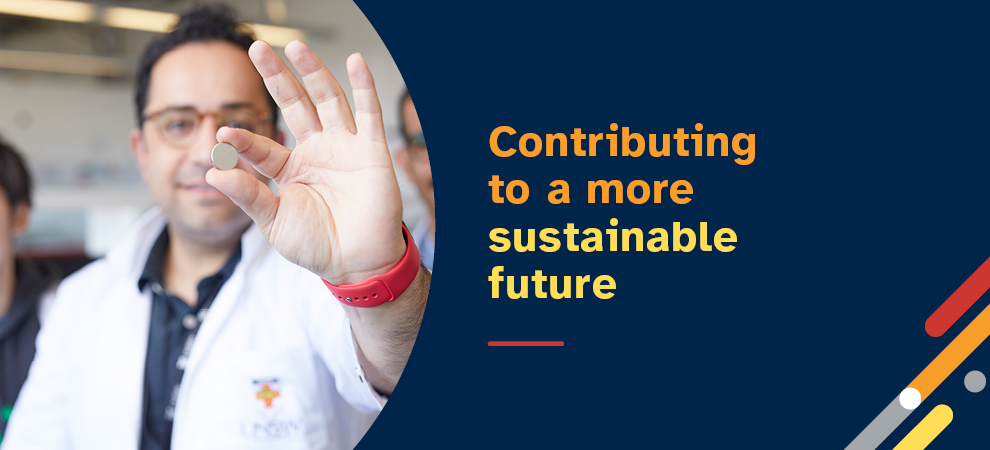This National Recycling Week, we are highlighting some exciting projects supported by the department’s Trailblazer Universities Program.
The Australian Government is investing $370.3 million in the Trailblazer Universities Program, which is building new research capabilities, driving commercialisation outcomes and investing in new industry engagement opportunities.
A new approach to dyeing clothes
Jeans are one of the most worn garments in the world, but they are also one of the least environmentally friendly, taking around 75 litres of water to dye just one pair.
Deakin University has partnered with Geelong-based company Xefco as part of its Recycling and Clean Energy Commercialisation Hub (REACH) to conduct new research to transform how our clothing, including jeans, get their colour.
Deakin’s work with Xefco is helping to explore if a waterless manufacturing process can replace the water intensive processes the clothing industry has used for hundreds of years. The new technology in development is called ‘Ausora’.
Associate Professor Alessandra Sutti, from Deakin’s Institute for Frontier Materials, said it was exciting to be on the commercialisation journey with Xefco, working with the company to discover what is possible and hopefully reduce the world’s fashion footprint.
“If successful, the Ausora technology, which colours fabrics without the need for large quantities of water, will put us a step closer to more efficient and sustainable clothing manufacturing,” Associate Professor Sutti said.
Designing rechargeable batteries with sodium
The University of NSW, in partnership with Vecor Technologies and supported by the Trailblazer for Recycling and Clean Energy (TRaCE), is developing a cost-effective and environmentally friendly fabrication strategy to make highly efficient and sustainable rechargeable cobalt-free batteries, in which sodium is used instead of lithium.
A major advantage of sodium-ion batteries is that they can be manufactured using similar equipment to current batteries, allowing for widespread production at lower costs.
Vecor CEO Mark Ramsey said the company concentrates on using recycled and commonly available materials to reduce environmental impacts and reduce supply chain risks in key industries.
“We are particularly interested in exploring how to effectively utilise sodium, instead of lithium, in batteries. Unlike lithium, sodium is an abundant resource – the sixth most common element in the Earth’s crust – and can be extracted without significant environmental consequences,” Mr Ramsey said.
This breakthrough has the potential to transform the energy storage market, making sustainable and affordable energy solutions more accessible than ever before.
To find out more, visit Trailblazer Universities Program.

